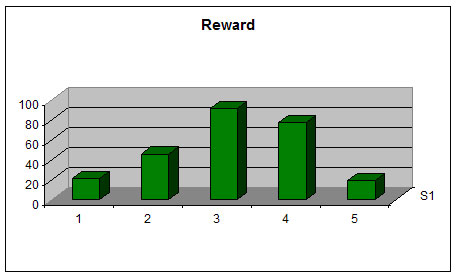In the StickyMinds.com column, "May I Take Your Temperature?" by Linda Hayes, you were asked to rate the state of the testing industry and your current level of satisfaction as a tester. Many of you responded to Linda's survey, and the results surprised her. Linda shares a revision of her state of the industry, as reported by you!
Good news: My pessimistic view of the state of the testing industry, as described in my last column, "May I Take Your Temperature?" was disproved by the survey results. Not only are a majority of responders enjoying their jobs as testers, but they offer useful and even profound advice. Here is what we found:
Longevity
The average tester stays in a company for just under three years. That's a range from a high of about ten years in one place to only six weeks. Many are contractors, which may skew the numbers lower. Those who spent a long time at a single company typically rotated through a number of roles and/or divisions. The average time spent in testing as a career was almost nine years, with a high of thirty years. If people can stay in testing that long, it can't be all bad.
Do You Enjoy Your Job?
Think about whether you look forward to going to work and feel a sense of satisfaction and accomplishment at the end of the day. Rate this on a scale of 1 to 5, where 1 means you are a candidate for anti-depressants and 5 means you spend your free time improving your testing skills.
As the graph below shows, most testers actually enjoy what they do. The average response was 3.6 out of 5. Again, shows what I know. Far from being depressed and downtrodden, most testers show enthusiasm for their job.
 |
As you will see when we get to the bonus question, a lot of this can be credited to individuals' adopting healthy and realistic views of their job as opposed to external influences.
Do You Feel Your Efforts Are Recognized?
This is about non-monetary rewards—a.k.a. "psychic income"—that make you feel like a valued member of the team. They might take the form of a promotion, plaque, or even just favorable mention in a meeting or memo. Rate this on a scale of 1 to 5, where 1 means you have to remind people who you are and what you do and 5 means you have a wall of certificates and plaques, a desk covered with trophies, and drawers full of thank-you cards and letters.
 |
Here the answers averaged 2.9, which is barely lower than exactly in the middle. In other words, we feel reasonably recognized—not great but not bad. However, at the ends of the scale more people feel under appreciated than highly valued. Since the curve on enjoyment was skewed exactly the other way, this reinforces the perception that testers often provide their own job satisfaction. In my opinion, this is actually healthy as it puts you more in control of your own emotional state.
Do You Feel Reasonably Rewarded for Your Efforts?
This is all about the money. Are you paid fairly for the amount and quality of work that you do? Do you have a chance to earn bonuses or raises that are based on measurements within your control? Use the same scale of 1 to 5, where 1 means you are always looking for transfers to other jobs or companies that pay more and 5 means you have a plausible opportunity to retire early and enjoy your golden years.
Here, again, is a surprise. The average was 3.1, slightly higher than exactly in the middle. So the idea that testers are underpaid is not borne out. I find this particularly hopeful, since I believe that historically we have been underpaid but that things are changing for the better. Many respondents said they receive equal pay to developers. Hallelujah!
 |
Bonus Question
Share any strategies that have or have not worked for you and why. Express yourself as freely as you can.
Many respondents said they were just as interested as I was in what was working, since they were also searching. What's especially interesting about this is that it came down not so much to metrics—though of course they are a factor—but more to "touchy feely" suggestions. There isn't enough room to share them all, but they did seem to fall into certain categories that I found fascinating and are worth mentioning.
Communicate, Communicate, Communicate
This was expressed in many ways but boiled down to the same thing: Stay connected. Talk to all stakeholders, involve yourself throughout the process, make sure everyone understands what you are doing and also that you understand what they are up against. Be an active, contributing member of the team. Maintain close ties with customers so you know what they need, work closely with developers as peers and partners, and always keep management fully and promptly informed.
Also interesting is that companies using agile approaches seem to be the most likely to promote healthy communication. Perhaps it's because agility depends on cross-functional teams that work closely together.
Don't Take Your Job Too Seriously
This was also expressed as "don't care too much." In other words, keep perspective. With rare exceptions, a bug isn't going to kill anyone and there will always be another release after this one. Don't let the drama of deadlines work you into a frenzy or the apparent insensitivity or cluelessness of management drive you crazy. Look for the humor (Dilbert references figured prominently), and find fun where you can.
This also means not martyring yourself. Don't work too many hours. Don't let your health and relationships suffer by trying to meet unrealistic demands. If it's too much, then quit. It's not worth it; there are other opportunities.
Culture and Measure
It's not news that companies that nurture a culture of mutual respect among all employees are welcome places to work, regardless of your profession. But for testers it's more than that; it's being noticed and appreciated, and sometimes that means that an unanticipated pat on the back or free lunch is almost as valuable as a formal bonus program. As one person put it, "Good words and respect are priceless."
Measurement is important, but it may not be what we traditionally think of. My favorites were those that suggested measuring customer satisfaction, market share, competitive wins, and other business-oriented goals that give true meaning to "quality." In other words, don't measure what you do—number of test cases developed or executed, defects found, hours worked, etc.—measure the results! Everyone wants to be part of a winning team.
One column is not enough to share all the insight and ideas I was lucky enough to receive, so stay tuned. Thanks to all who took the time to complete the survey and/or express your views online and through email. I feel much better about our profession.

